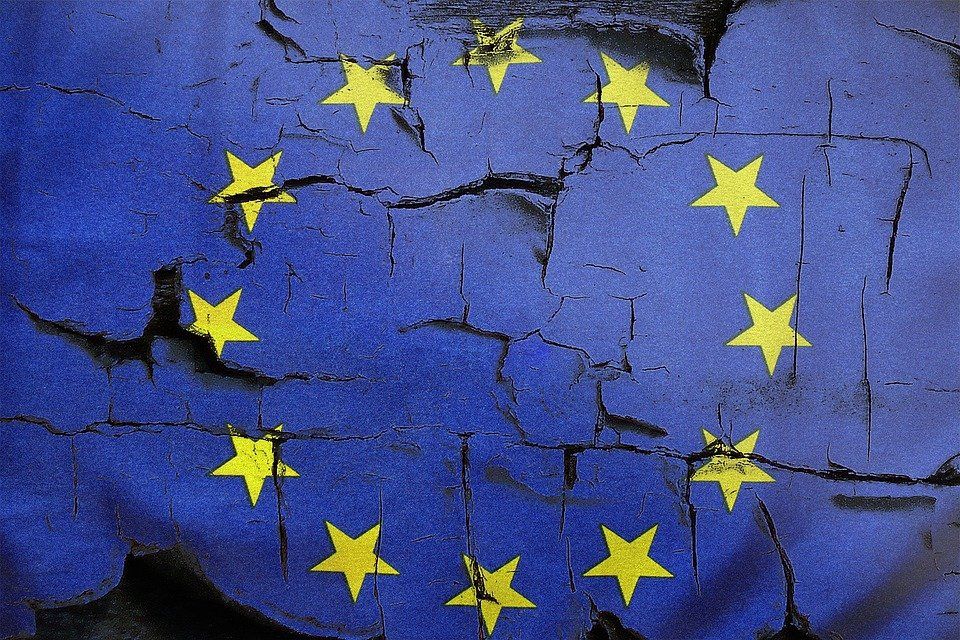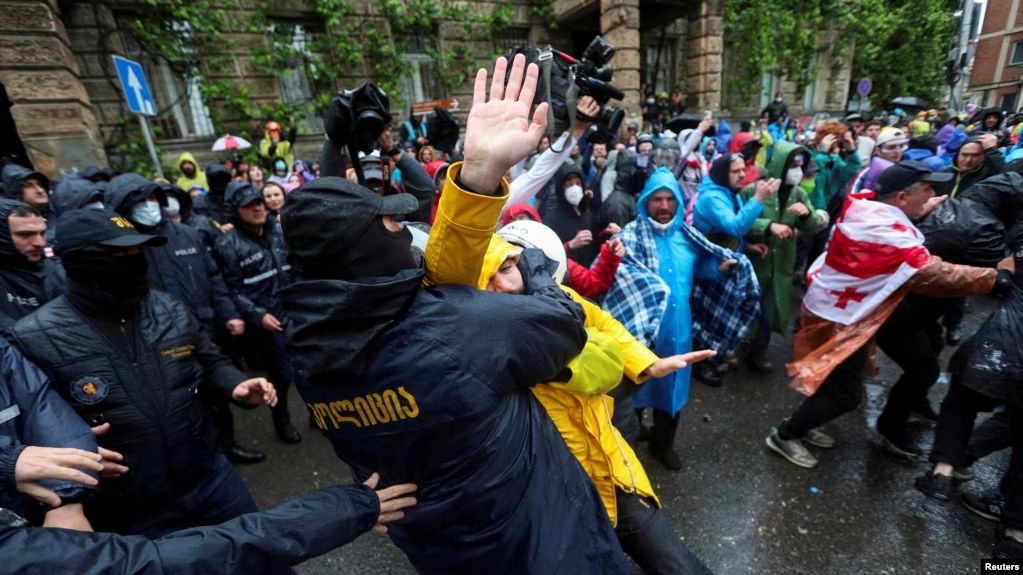EU's democracy decays as Tbilisi gains its right to independent policy

The European Union’s desire to exert influence and expand its sphere of influence across various regions often leads to either internal unrest or outright war in certain countries. In the South Caucasus region, which includes Azerbaijan, Armenia, and Georgia, the EU’s primary goal is to push back Russia and control territories connecting the East and West.
Efforts to bring Ukraine and Georgia into the EU through membership proposals have triggered various conflicts, with key figures later creating problems in these countries before moving on. The scenario played out in Ukraine years ago is now being attempted in Georgia. Notably, while Ukraine-Russia war-affected areas are not part of the EU, no EU citizen has lost their home or family due to these conflicts.
Using the Ukraine war as justification, the West has openly sanctioned Russia, and it appears that similar plans are underway for Georgia—to disrupt relations with Russia and confuse public opinion. Accordingly, the EU, which allocated substantial funds to Western elements in Georgia, heavily criticized Tbilisi after the Foreign Agents Law was passed in May.

Criticism of the election results that brought the “Georgian Dream” party to power also stems from elements opposing independent policy in the country. EU High Representative for Foreign Affairs Josep Borrell recently called for “transparency” in the Georgian elections, while 13 EU countries, including Germany and France, condemned Hungarian Prime Minister Viktor Orban’s congratulatory visit to Georgia’s ruling party, claiming Orban was “unauthorized” to extend this congratulations.
Orban stated that the “Georgian Dream” party prevented Georgia
from becoming “another Ukraine,” saying:
"I would like to congratulate you for preventing your country from
becoming a second Ukraine in the pursuit of European integration.
We truly value Prime Minister Irakli Kobakhidze's commitment to
this idea. Personally, I believe that Georgia will only be ready to
join the EU by the end of the decade.”
Other EU members firmly rejected Orban’s views, labeling Georgia’s elections as fraudulent. Germany, which previously did not accept a party that won through electronic voting, cast doubt on its internal election processes with this stance.
In Georgia, 90% of voters cast their ballots electronically.
Notably, pro-Western President Salome Zourabichvili criticized the
elections in Armenia and claimed this method was also used in
Georgia. In an interview with the Associated Press, she described
the “Armenian carousel” method being applied in Georgia,
inadvertently exposing Armenia’s election practices:
"We call it the 'Armenian carousel.' I don't know, maybe in Armenia
they call it the 'Georgian carousel'... It means that some time
before the elections, IDs from socially vulnerable people are
collected for various reasons and then used for voting. A single ID
and multiple devices can allow for this up to 17 times, giving them
access to numerous IDs and personal numbers,” she said.
Zourabichvili’s statements reveal a significant contradiction: while the EU has taken ownership of Armenia, her EU-supported administration’s statements reveal flaws in Armenian elections. Meanwhile, Viktor Orban faced criticism, signaling that Western plans for Georgia may be somewhat upended.
Interesting remark by #Georgia’s President Zourabichvili referring to possible election frauds as …“#Armenia~n carousel.”
— FATSR – BİTDEFE ✒️ (@fatsr_bitdefe) October 29, 2024
Is she referring to the pre-Pashinyan governments, say the ones under the deplorable Robert Kocharyan
and Serzh Sargsyan? pic.twitter.com/GV2vGHG5Jb
Firstly, it raises the question of what Borrell is investigating in an EU-implemented voting system. Secondly, EU officials’ assertion that Orban lacks authority to speak on behalf of the EU, despite being its rotating president, is puzzling. Thirdly, after the Armenian Prime Minister congratulated his Georgian counterpart, Zourabichvili’s criticisms of Armenian elections highlight the contradictions within the EU-Armenia-Georgia triangle.
In conclusion, it is anticipated that the EU and other Western elements may attempt to create disturbances within Georgia. However, the current ruling party’s clear stance against involving Georgia in these plans could aid Tbilisi’s pursuit of an independent policy in the region.
----
Here we are to serve you with news right now. It does not cost much, but worth your attention.
Choose to support open, independent, quality journalism and subscribe on a monthly basis.
By subscribing to our online newspaper, you can have full digital access to all news, analysis, and much more.
Fatima Latifova is AzerNews’ staff journalist, follow her on Twitter: @fatimalatifova
You can also follow AzerNEWS on Twitter @AzerNewsAz or Facebook @AzerNewsNewspaper
Thank you!
Here we are to serve you with news right now. It does not cost much, but worth your attention.
Choose to support open, independent, quality journalism and subscribe on a monthly basis.
By subscribing to our online newspaper, you can have full digital access to all news, analysis, and much more.
You can also follow AzerNEWS on Twitter @AzerNewsAz or Facebook @AzerNewsNewspaper
Thank you!

